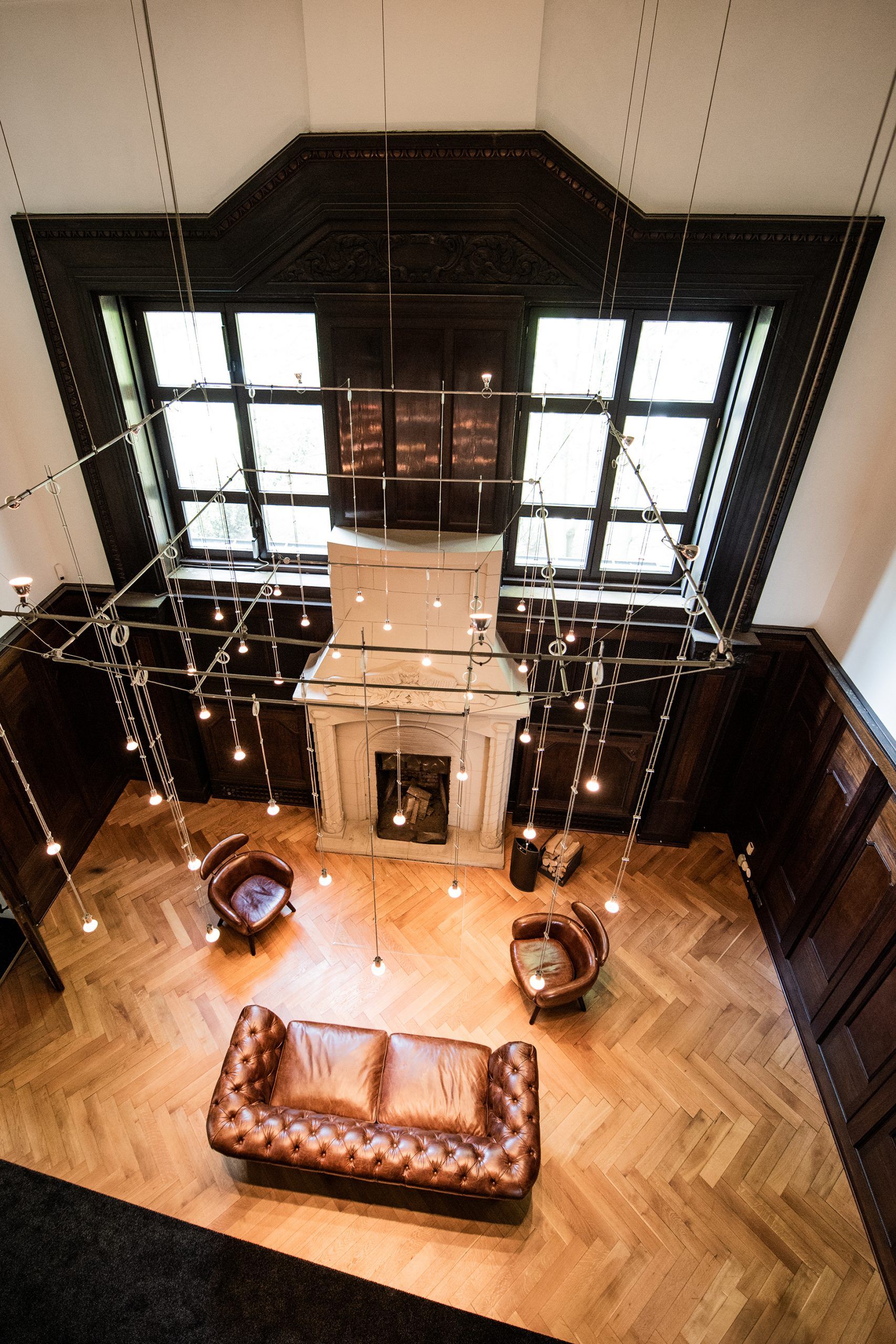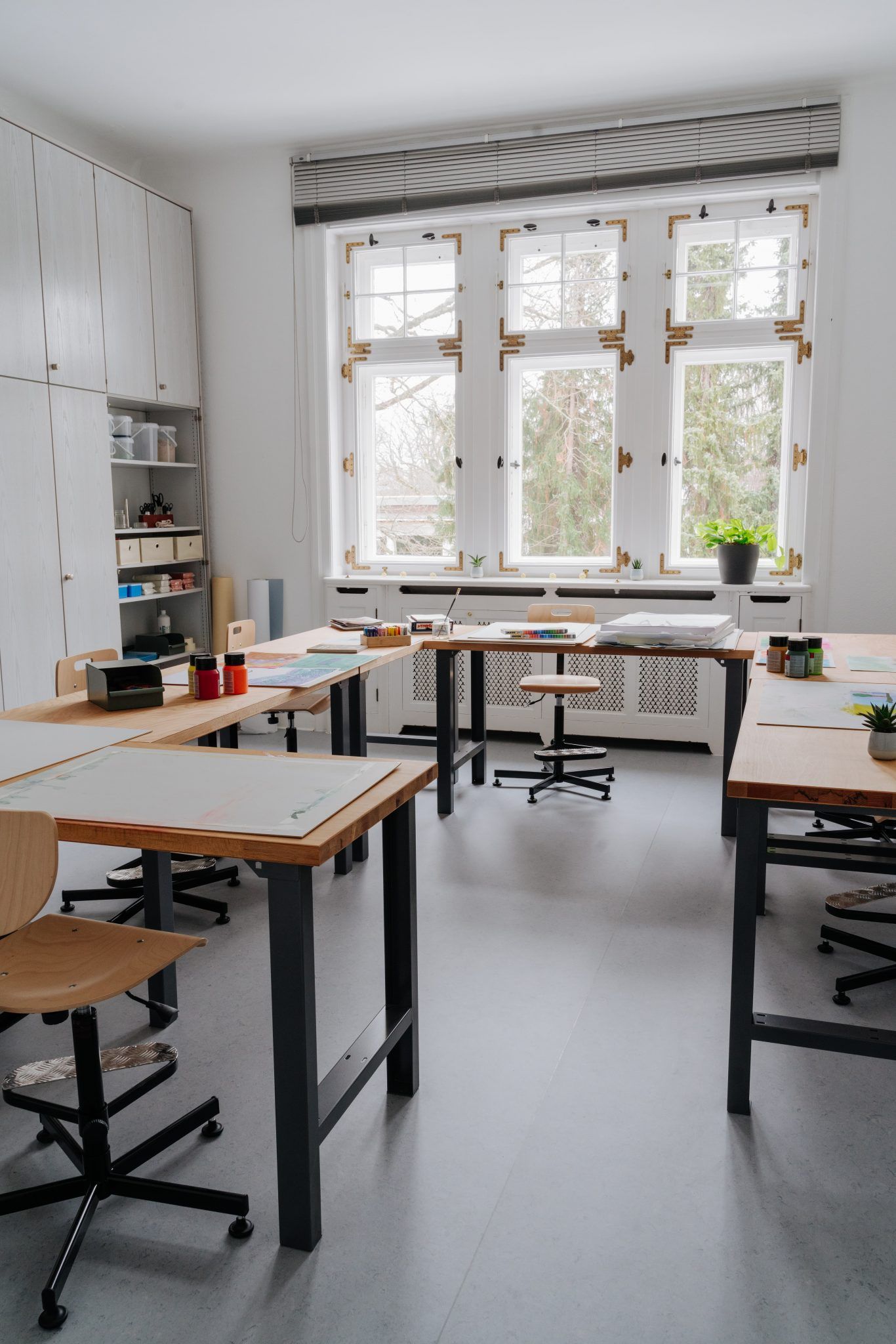The MHI Berlin relies on an interdisciplinary treatment concept
In our clinic, the focus is on the individual.
The entire treatment concept is therefore always tailored to the individual patient in order to offer the best possible treatment. Our concept is based on an interdisciplinary treatment approach, in which a large team from different therapy areas take care of and accompany the patient.
As a rule, we offer transdiagnostic procedures, i.e., forms of treatment that are effective for different diagnoses. In addition, the pharmacotherapy we prefer is syndromally oriented, but at the same time effective according to diagnoses.
The individual psychotherapies, which are either cognitive-behavioral or depth-psychological based, focus on the individual psychological constellation of the patient. The diagnosis, but also the socio-biographical development, as well as own preferences and goals play an important role.
The majority of our therapists are multilingual, so therapy forms can also be offered in fluent English and French.

OUR TREATMENT FOCUS
STRESS-ASSOCIATED DISEASES
ANXIETY DISORDERS
BIPOLAR DISORDERS
MCI
Cognitive disorder
Depression
Burnout
PERSONALITY DISORDERS
ADJUSTMENT DISORDERS
SCHIZOPHRENIA
Individual treatment components that make up your personal therapy:

In addition to psychopharmacotherapy, psychotherapy is another important component in the treatment of mental and psychosomatic illnesses.
The focus of behavioral therapy (VT) is on actively changing experience and behavior, taking into account previous learning experiences and the individual biography of those affected. Based on the assumption that there is a connection between feeling, thinking and acting, behavior therapy is about questioning and changing one’s own thought, feeling and behavior patterns in current situations
The classic cognitive-behavioral individual treatment is supplemented by mindfulness- and acceptance-based methods from Acceptance and Commitment Therapy (ACT), Dialectical Behavioral Therapy (DBT), and elements from Schema Therapy, which was developed primarily for the treatment of patients with complex psychological problems. In the latter, the focus is not only on current problems, but also on their history of development.
In depth psychologically based psychotherapy (TP), it is assumed that there are unconscious feelings and desires that significantly influence our decisions and especially our way of giving in relationships. Resulting recurring conflicts and (relational) experiences can determine our lives sorrowfully and result in mental illness.
The goal of treatment in this method is to identify the underlying unconscious motives and conflicts of the current symptoms and to deal with them. Understanding possible connections enables decisions to be made holistically, and behaviors to be influenced and changed. For this therapy to be effective, it is important to address feelings, memories, associations, dreams, fantasies, and imaginings in order to make connections or discard them as irrelevant.

Psychopharmacotherapy is individualized after close examination of the individual effect/side-effect profile and according to the motto “as little as possible, as much as necessary”. This means above all: a detailed risk-benefit assessment in the selection and dosage of medications.
We see ourselves as “early adopters” of the latest scientific findings and integrate innovative, scientifically supported and successful concepts from international research into our range of therapies. Through additional serum concentration determinations within the framework of therapeutic drug monitoring (TDM) and careful physical check-ups prior to the start of medication, we create the highest level of safety in medication.
Mental disorders can also express themselves in a variety of physical complaints. Our experts integrate necessary somatic treatments with guideline-oriented psychopharmacotherapy into a holistic treatment plan.

Mindfulness methods in the therapeutic and psychotherapeutic context are based on a holistic method approach, which is also called mind-body approach in the Anglo-Saxon language area. The mindfulness methods are borrowed from Mindfulness-Based Stress Reduction (MBSR) according to Jon Kabat-Zinn, Mindfulness-Based Congnive Therapy (MBCT) according to Zindel Segal/Mark Williams/John Teasdale, Mindful Self-Compassion (MSC) according to Christopher Germer/Kristin Neff and Dialectical Behavioral Therapy (DBT) according to Marsha Linehan.
In the meditation sessions and through practice at home with the help of audio files, the ability for self-awareness and self-reflection with regard to the interdependent conditions of thoughts, feelings, body reactions and impulses for action is practiced and strengthened. Thus, an acceptance of stressful and painful emotional states and an expanded freedom of decision and action can develop and lead to greater serenity in everyday life. Handouts and mp3 files are provided for support.
Contents of the meditation classes are:
- Body Scan – guided body awareness meditation
- Light mindful hatha yoga
- Sitting meditation – observation of breath, awareness of body sensations, sounds, thoughts and feelings.
- Walking meditation
- Meditations from the context of Mindful Self-Compassion
- Group dialogue – exchange of experience regarding positive experiences and difficulties experienced
- Mediation of the theory-practice relationship
- Mindfulness opportunities in everyday life (forms of informal practice)
The practice sessions provide an opportunity to become familiar with the following meditation qualities:
- Acceptance of what is currently in the focus of experience
- Value freedom regarding the experiences in the here-and-now
- Moving from a mode of doing to a mode of being for a limited period of time
- To practice openness and curiosity in meditation
- Development of confidence in one’s own development process
- Practice patience
- Allowing and letting go of experiences made
- Practicing kindness, kindness and gentleness to oneself

Body psychotherapy was founded by Wilhelm Reich. In its tradition shaped by depth psychology, it has increasingly developed in the direction of humanistic psychotherapy in recent decades and years. Based on the original living emotionality and physicality of the human being, which can change individually in the course of life and experience, body psychotherapy uses, among other things, the self-awareness of bodily sensations and vegetative and somatic resonance in therapeutic work in order to gain access to affects and feelings.
With the help of body exercises, patients move “from the head into the body”, through which their own state of mind is perceived and described. Through this, situations and reactions in everyday life and in relationships can be understood in a broader way and attitudes and actions can be corrected. Suppressed feelings, which should not be or are not allowed to be, get their space of expression. The perception of one’s own boundaries and desires for delimitation is strengthened.

Provides vocational integration or reintegration services for the mentally ill with the understanding that vocational stability and esteem are an essential part of an individual’s self-worth.


Art therapy is an experience-oriented therapy that involves a work process and pursues a concrete therapeutic goal. Topics are made visible, conscious and discussable through the pictorial work. The customized offer, which the treating art therapist coordinates with the patient, takes into account the question of help, the phase of life and the respective resources. Depending on the indication, the depth-psychological, design-therapeutic approach or behavior-therapeutically oriented art therapy units are used. Depending on the level of therapy, work is done in individual and group settings with selected artistic materials, such as acrylic, watercolor, pastel and 3D material. In addition, weekly cultural excursions encourage external and internal experience and exchange.

We consider our breath to be a natural and everyday bodily function, similar to our heartbeat. We breathe in and out 24 hours a day, taking about 20.000 breaths. We are hardly aware of their powerful effect.
Yet our breath is in constant interaction with our body perception, our spirit and our mental state.
The special thing – we can become aware of our breathing processes, control them deliberately and thus positively influence and harmonize our state of health through the right way of breathing.
Through specific breathing techniques and breathing exercises, we can synchronize our body and breath and thus make our everyday life easier, give our body rest and also increase our performance.
To strengthen and maintain the balance between body, mind and soul is the goal of respiratory therapy.

In our well-equipped therapy room, we can address your physical needs in the context of mental disorders, both in groups and individually. First and foremost, we would like to offer you an exercise therapy group program.
If the weather permits, we can move our program to the garden or walk through the beautiful avenues in Neu-Westend.
If you need individual therapy, it is possible to be treated both at the MHI and at the practice located in the immediate vicinity (http://physio-glueckselig.com/). The following techniques are offered:
- Manual therapy
- Physiotherapy
- Medical training therapy
- Osteopathy
- CMD TMJ treatment
- Manual lymphatic drainage
- Massage
- Craniosacral therapy
- KG CNS according to Bobath and PNF
- Relaxation method

Light therapy is a method for treating depression and sleep disorders. Its effectiveness has been scientifically proven. Light therapy can be a low side effect and physiological addition to the treatment spectrum.

As part of your treatment, you will be offered additional various training sessions and psychoeducation. These are further small components of our holistic treatment concept.
Resilience Training
Resilience training is a process in which one’s own resources are made visible and usable, with the goal of reacting flexibly or more flexibly than before to external and internal pressure.
Social competence training
This training involves careful observation and differentiation of specific behaviors, deletion of (inappropriate) judgments, and building objective observations and directing attention to progress to strengthen self-efficacy.
Psychoeducation
The term psychoeducation covers systematic didactic-psychotherapeutic interventions that are suitable for informing patients and their relatives about the disease and its treatment, for promoting understanding of the disease and independent coping with it, and for supporting them in coping with the disease.
Focus on attention deficit / hyperactivity syndrome (ADHD) in adults
Detailed differential diagnosis and, if necessary, initiation of individual therapy measures (including medication, cognitive training, behavioural therapy) under day-care conditions for privately insured and self-pay patients.
Prompt admission to our day clinic is possible.
Please send enquiries to: office@mhiberlin.de and phone number +49 (0)30-235 9367-10.
Our therapy offer meets a special place
We treat our patients in a beautiful old villa located in Berlin Westend.
